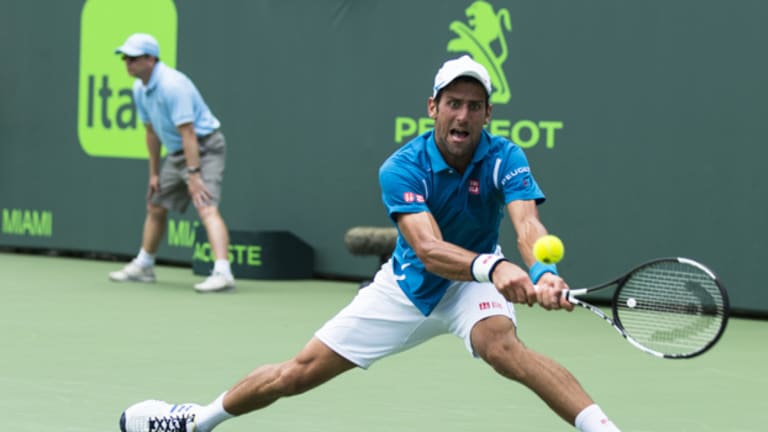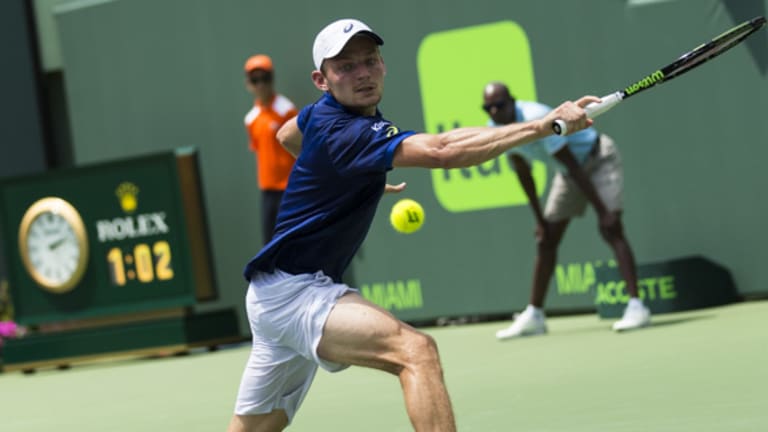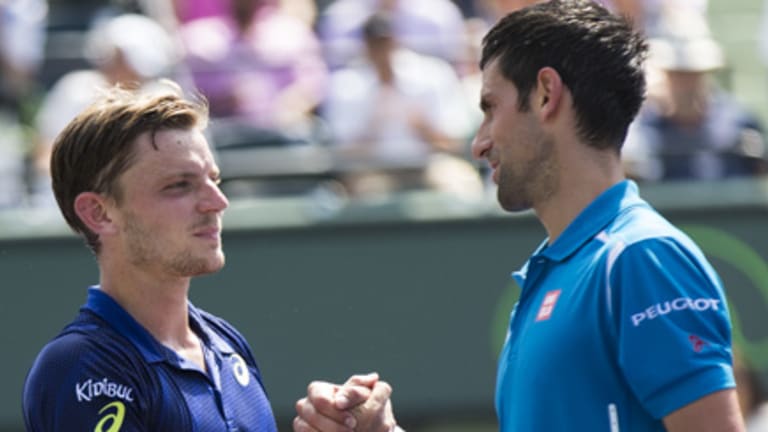KEY BISCAYNE, Fla.—After an hour of play on a blazingly humid Friday afternoon at Crandon Park, David Goffin led Novak Djokovic by a single point, 2-1, in the first-set tiebreaker. The stadium court echoed with the thud from his last shot, a 116-m.p.h. ace. The 15th-ranked Goffin had lost all three of his previous matches to Djokovic, and he was playing his first semifinal at a Masters-level event, but he didn’t appear to be intimidated by the opponent or the moment.
Or at least that’s what a few of the fans sitting near me seemed to think.
“He’s got his confidence going,” one said.
“He’s not scared,” his neighbor agreed.
“Hey, this guy is good,” a third chimed in, more than slightly amazed that an unheralded and undersized Belgian could push the world’s No. 1 player this far.
My answer to them in my own head?
“We’ll see.”
Goffin had come a long way over the last month, particularly for a 25-year-old who has been on tour for the better part of a decade. He had beaten Stan Wawrinka on his way to the quarterfinals in Indian Wells and had dropped just one set on his way to the semis in Miami. He had always had flashy ball-striking skills; now he had added strength and substance to the style.
All of that was fine and encouraging, but it bore little resemblance, psychologically, to the challenge of playing with a lead against Djokovic right now. How could we expect any player, no matter what his level of confidence, to believe he can close out a match against Djokovic on this day, on this court? The numbers alone were enough to sap even the toughest competitor's willpower.


